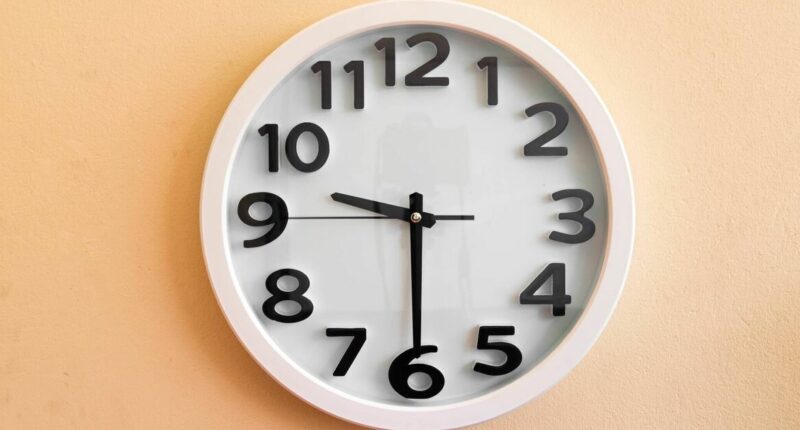Share this @internewscast.com
Individuals eager to avoid waking up tired are being urged to adhere to a 9.30pm guideline. This suggestion arises from new findings by independent bed retailer Land of Beds, revealing that the UK is experiencing a ‘sleep crisis’.
The data indicates that over 75% of adults do not get the advised seven hours of sleep nightly, and almost half admit they rarely or never wake up feeling completely rested, according to the Mirror. This extensive survey, which encompassed over 1,000 UK adults ranging from 18 to 99 years old, was carried out in June 2025. Researchers associated with the survey claim that it reflects how modern life pressures and increased reliance on technology are leaving the population perpetually tired.
Dr. Nerina Ramlakhan, a physiologist, sleep expert, author, and speaker, contributed insights to the research. She stated: “The pace of life and its demands, primarily driven by technology, have made our society highly unsettled.”
“It is common for many to remain active and work continuously throughout the day, seldom taking breaks and extending work hours. At bedtime, the brain has more work to accomplish in processing the day’s information, leading to irregular and less restorative sleep.”
A contributing factor exacerbating the problem is browsing before sleep. The study found that 60% of participants use their smartphones right before sleep, potentially impacting the quality of their rest.
Nonetheless, Dr. Ramlakhan warned: “A significant factor for people going to bed too late and not waking up recharged is nighttime scrolling and engaging with social media and news. The nervous system becomes excessively stimulated when people use electronic devices before sleeping.”
“This often causes them to worry about work or the state of the world, or they compare themselves and their lives with what they see on social media, which creates feelings of low self-esteem and self-worth. None of this is conducive to getting a good night’s sleep.”
Using screens before bedtime is detrimental because the blue light emitted can inhibit melatonin, the hormone responsible for sleep, while the content can keep your brain active when it should be relaxing. This interferes with your natural sleep-wake rhythm, making it more difficult to drift off and potentially resulting in less sleep and lower sleep quality.
The NHS recommends adults aim for seven to nine hours of good-quality sleep each night. Prolonged sleep deprivation can contribute to a heightened risk of obesity, heart disease, depression, and compromised immunity.
For those seeking to enhance their rest, Dr Ramlakhan suggests beginning the wind-down routine earlier in the evening. She emphasises the significance of 9.30pm, which she describes as when “our brain and body are perfectly aligned physiologically with the environment”.
She continued: “This is the best time to transition from the busyness of the day and start the process of resting. The person doesn’t need to be asleep at this time but rather, winding down, reading something relaxing or meditating.”
Many people consider getting into bed by 9.30pm a wise and healthy decision. This time is in sync with our body’s natural circadian rhythm and cycles, which are dictated by darkness. Adhering to this routine has numerous benefits such as improved mental clarity, enhanced mood, reduced anxiety, and a lower risk of chronic diseases.
However, the ideal bedtime varies depending on your age and sleep needs. A handy tip is to count backwards from when you need to wake up to see if a 9.30pm bedtime allows you to achieve the recommended seven to nine hours of sleep.
Quality sleep aids the brain in storing memories, which helps enhance learning and problem-solving abilities. An early bedtime coupled with sufficient quality sleep has been proven to contribute to better physical health by bolstering immune function, reducing inflammation, regulating blood pressure, and decreasing the risk of chronic ailments like diabetes and heart disease.












